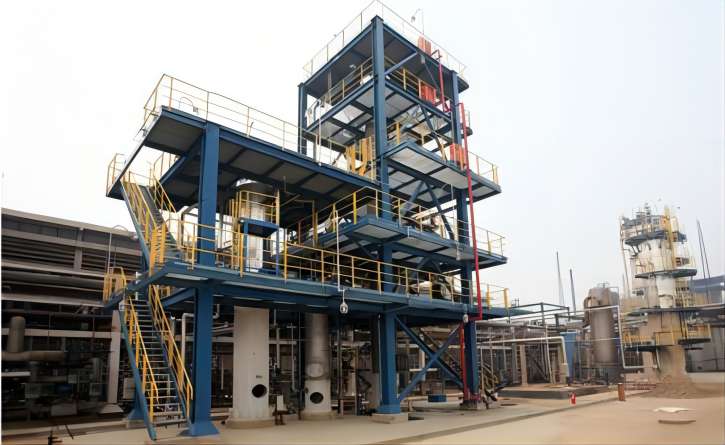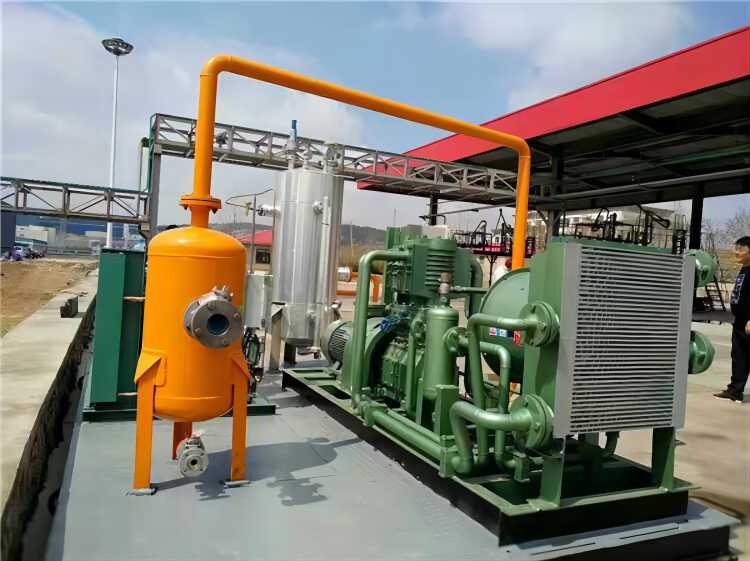From Waste to Fuel: The Potential of Recovering Used Oil and Converting it to Diesel
Every year, millions of gallons of used lubricating oil are discarded, posing a significant environmental and economic threat. This oily waste, often dumped illegally or improperly stored, pollutes our soil and waterways, harms wildlife, and represents a missed opportunity for resource recovery. Fortunately, innovative technologies are emerging to address this challenge, transforming waste oil into a valuable commodity: renewable diesel fuel.

How Important is Recycling Waste Oil?
The importance of waste oil recovery cannot be overstated. Beyond the environmental benefits of preventing pollution and conserving resources, proper oil management translates to economic gains. By diverting used oil from landfills and incinerators, we create cost-effective alternatives to virgin oil, while also generating jobs in the collection, processing, and distribution sectors.
The Alchemy of Waste: Transforming Used Lubricating Oil into Diesel Fuel
The journey from waste oil to diesel is a fascinating transformation, akin to alchemy in its ability to turn discarded material into valuable fuel. This process unfolds in several crucial stages, each playing a vital role in the final product’s quality and sustainability.
- Collection and Storage: Efficient systems, like convenient household drop-off points and dedicated commercial collection services, are the heroes of this initial act. Proper storage and handling, like secure containers and leak-proof practices, are essential to prevent environmental contamination.
- Separation and Purification: This is where the magic happens. Techniques like gravity separation (letting heavier impurities sink), centrifugation (spinning out finer particles), and filtration (sieving out remaining contaminants) transform the oil into a pristine, ready-for-rebirth form.
- Dehydration: Water is the enemy of recycled fuel, promoting microbial growth and corrosion. Dehydration, like using heat or special chemicals, removes this unwanted guest, ensuring the oil’s long-term stability.
From Used Lubricating Oil to Diesel: A Trio of Transformation Techniques
With a clean and dry oil in hand, we can embark on the final stage: conversion into diesel fuel. Three primary methods offer different advantages and limitations:
- Re-refining: This established approach utilizes chemical treatments and distillation to remove contaminants and separate different oil fractions. The resulting base oil can then be blended with virgin oil, creating a high-quality diesel substitute. While effective, re-refining can be energy-intensive and expensive.
- Pyrolysis: This thermal decomposition process harnesses high temperatures to break down the oil’s long hydrocarbon chains into shorter, diesel-like molecules. It offers high conversion rates but necessitates specialized equipment and requires careful safety considerations. Additionally, pyrolysis generates valuable byproducts like gasoline and naphtha, potentially increasing its economic viability.
- Transesterification: Primarily used for vegetable oils, this process can also be applied to certain types of used oil. It involves reacting the oil with an alcohol to produce biodiesel, a renewable fuel with distinct properties and applications. While environmentally friendly, transesterification may not be suitable for all types of waste oil due to compatibility issues.

Challenges and Opportunities: Paving the Way for a Brighter Future
Despite these challenges, the potential of used oil to diesel conversion is undeniable. Recycled diesel can significantly reduce our reliance on fossil fuels, decrease greenhouse gas emissions, and create a more sustainable transportation sector. Several factors are crucial for unlocking this potential:
- Technological advancements: Continued research and development can improve the efficiency and cost-effectiveness of existing processes, while also exploring new and innovative methods for waste oil conversion.
- Regulatory frameworks: Clear and supportive regulations are needed to ensure the safety, quality, and environmental impact of recycled diesel fuel.
- Market demand: Creating awareness and building consumer confidence in recycled diesel is essential for driving its adoption by businesses and individuals.
- Economic incentives: Government policies and financial initiatives can incentivize the collection, processing, and use of recycled diesel, making it a more attractive and competitive option.
In conclusion, the transformation of waste oil into diesel fuel represents a significant opportunity for environmental protection, resource conservation, and economic growth. By embracing innovative technologies, establishing robust regulatory frameworks, and fostering market demand, we can unlock the full potential of this sustainable solution. As we move towards a greener future, reimagining waste as a valuable resource can pave the way for a cleaner and more sustainable planet.







